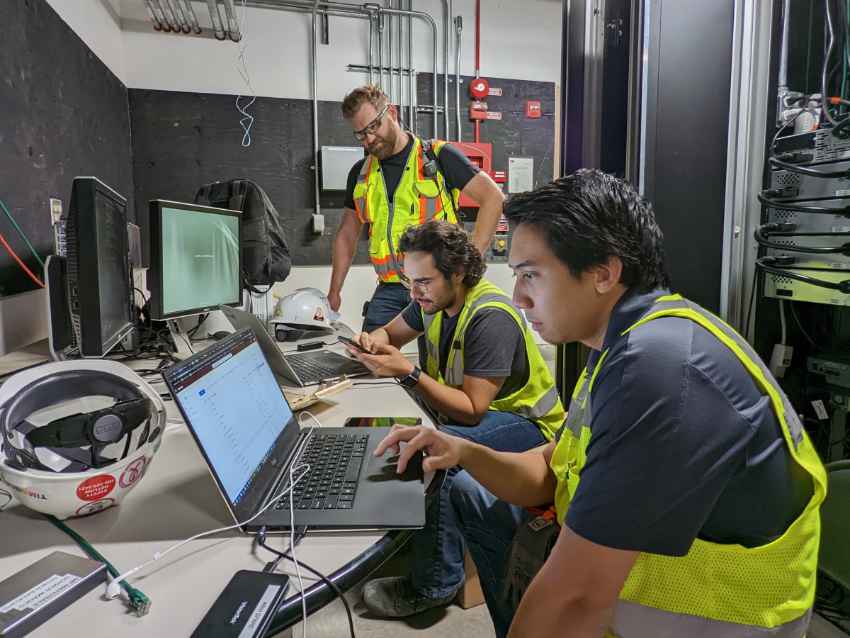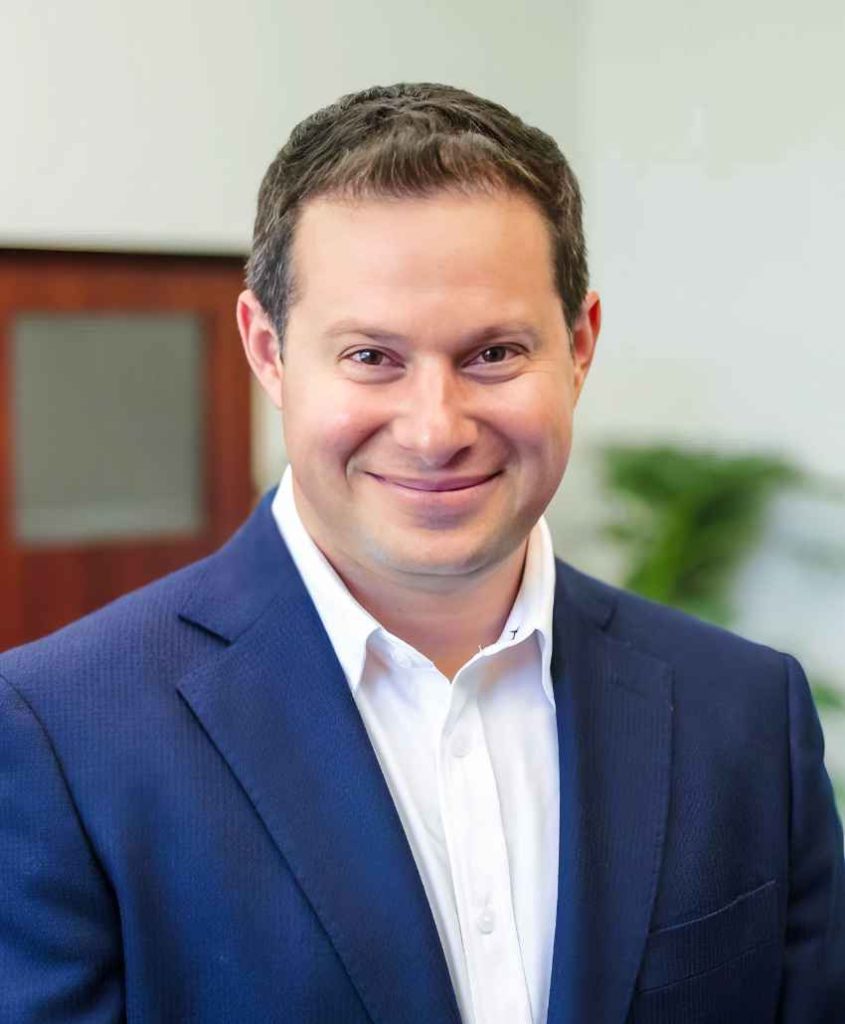Thermo Systems is a global, full-service control systems integration partner, providing world-class automation solutions within the District Energy, Life Sciences, and Mission Critical markets.
Interview with Eric Silk, Chief Executive Officer (CEO) of Thermo Systems.
Price: Tell us something about the costs from an ROI perspective.
Eric Silk: Automation Systems typically provide substantial ROI by increasing operational efficiency and reliability of a system owner’s processes. Thermo Systems’ comprehensive services, including preconstruction support, detailed design, construction, and life cycle support, ensure that investments made by our clients result in long-term savings. Our solutions are designed to optimize energy efficiency, reduce downtime, and increase operational productivity, translating into a quicker payback period and higher returns on investment.
What about the costs for maintenance / future upgrades etc.?
E.S: Vendor selection of the control systems integrator, along with the type of system hardware and software installed, will affect the maintenance costs and longevity of the system. We encourage our customers to invest proper resources in the planning phase of the project to ensure they make informed decisions as they develop specifications and select a control systems integrator for their project. This will help reduce the risk of additional costs due to unforeseen maintenance and outages to the system.
We recommend planning for a proactive maintenance program to ensure that the system is performing as expected. Recommended scheduled maintenance should include creating system backups, providing security updates, keeping up with minor modifications, reviewing trend reports and troubleshooting items that were reported since the prior maintenance visit. Proactive maintenance can also be an opportunity for the systems integrator to answer questions about the system and provide ad hoc training to system operators.
We also recommend a 24/7 emergency response agreement to ensure qualified automation engineers are available to react to an unexpected event or outage.
System upgrades are necessary and should be planned well in advance with your systems integrator. System software upgrades (SCADA/HMI) are more frequent due to firmware, security and functionality changes from manufacturers. Control system hardware (PLC) upgrades can range from 10-15 years after the system is installed, depending on support from the hardware manufacturer. There are risks to performing upgrades; partnering with a control systems integrator that has relevant application experience in performing system upgrades will lower the risk and guide you to a successful outcome.
Thermo Systems offers a full suite of maintenance and upgrade services to ensure our clients’ systems remain at peak performance. Our 24/7 on-site and remote support, preventive and predictive maintenance programs, and software/system upgrades are tailored to minimize costs over the system’s lifespan. Our life-cycle support, including modernizations and migrations, is designed to keep systems updated and efficient, further reducing long-term operational expenses.

Quality: Tell us something about the quality behind your products/solutions.
E.S: At Thermo Systems, our commitment to quality is unwavering and is embedded in every project we undertake. Thermo Systems is recognized globally for delivering high-quality, on-time, and on-budget projects. We are proud to be CSIA certified, which signifies our adherence to the highest standards of excellence in control systems integration. This certification ensures that our processes and methodologies meet stringent industry benchmarks for quality and reliability. We are also recognized as a Rockwell Automation Platinum Partner, Ignition Premier Integrator and AVEVA certified integrator. These 3rd party certifications all require best-in-class approaches to delivering quality systems and successful customer outcomes.
We follow our Quality Management System (QMS), which is our playbook to delivering high quality solutions to our customers. It ensures that we adhere to the highest standards, providing traceable documentation, rigorous testing, and consistent checks and balances. Being CSIA certified means that we continuously improve our practices and are audited to ensure we maintain these high standards. This commitment to quality ensures that our solutions are reliable, durable, and meet the stringent requirements of our clients.
We also have a dedicated in-house Quality Assurance / Quality Control team. We develop, track and report on quality KPIs, conduct project audits and develop custom quality plans for each project.
Characteristics: What important features should clients search for and what features do your products/solutions offer?
E.S: We recommend that customers look for the right systems integrator for their unique industry and application. Control Systems have many applications across most industries with each industry and application requiring different types of experience. We see that control systems integrators typically have more relevant experience in their focused industries. For example, at Thermo Systems we focus on four core industries: Life Sciences, Energy, Data Center, and more recently Semiconductor. This focused approach allows us to provide specialized training to our teams so we can provide subject matter expertise to our customers.
Our engineers have over 25 years of experience serving our core industries. That level of experience allows us to deliver high quality solutions that solve our customers’ challenges. We are a long-term partner that is committed to helping our customers improve their business, lower risk and stay at the forefront of industry trends. We advise customers to interview integrators and ask them who specifically will be on your project, and what is that teams’ resume of experience?
From a feature/product perspective, clients should look for systems that offer scalability, integration capabilities, reliability, and non-proprietary comprehensive support. Control systems are highly custom solutions which make documentation and system training important. All products and software code should be well documented with each function and custom detail explained so there are no questions down the road when you need to modify the system.

Functionality: Tell us something about ease of use, integration with other solutions, or other innovative features of your products/solutions?
E.S: As a control systems integrator, our job is to seamlessly integrate disparate mechanical, electrical, IT equipment and other systems to create a fully automated process for our customers. We’re experts in selecting and customizing off-the-shelf and non-proprietary industrial hardware and software to integrate equipment using communication protocols and hardwired I/O. Our solutions are designed with user-friendliness, safety, uptime, scalability and maintainability in mind. We offer intuitive high performance graphical interfaces and advanced trending and reporting. Our team of experts provides comprehensive training for operators and ongoing maintenance support to ensure ease of use. Our systems are compatible with a wide range of existing IT, PLC, SCADA technologies and other platforms, enabling seamless integration and interoperability. Innovative features such as remote monitoring, optimization and predictive maintenance capabilities ensure that our clients’ systems remain at the forefront of technological advancements.
Comparison: What key features do your products/solutions have compared to others on the market?
E.S: Thermo Systems stands out in the market with our unparalleled domain knowledge in key sectors such as District Energy, Datacenter, and Life Sciences. Our extensive experience, combined with a comprehensive suite of services from preconstruction to full life-cycle support, sets us apart. We offer a unique combination of deep technical expertise, robust quality assurance, and a customer-centric approach that ensures the success of every project.
We are structured around the core industries that we serve, which allows our team to become specialists and bring subject matter expertise to our customers. Our team of project managers, engineers and technicians are highly skilled and trained in customer service in addition to focusing on technical solutions. We are a highly mobile team that serves customers across the USA and Europe with a proven ability to mobilize leadership and teams to meet our customers’ needs. To sum it up, our people are our key competitive advantage and differentiator in the market.
Feedback: What was the feedback from clients about your products/solutions?
E.S: Feedback from our clients has been overwhelmingly positive. They consistently commend us for our high-quality deliverables, timely project completion, and exceptional support services. Clients appreciate our proactive approach, technical expertise, and the long-term value we provide through our comprehensive solutions and dedicated customer support. We measure customer satisfaction through our project management process and conduct formalized net promoter score surveys. We’re fortunate to have amazing customers who have trusted us with their most complex and mission critical projects for more than 25 years.
What purchasing advice do you have for clients in your fields of activity?
E.S: When considering control systems integration solutions, clients should prioritize providers with a proven track record of quality, reliability, and comprehensive support. It’s important to choose a partner who can offer end-to-end services, from initial design to life-cycle maintenance. We also recommend considering the relevant industry and application experience the systems integrator brings to your project. At Thermo Systems, we emphasize the importance of early engagement, collaborative planning, and ongoing support to ensure that our clients achieve their business goals efficiently and effectively.
We recommend prequalifying a small group of control systems integrators to interview as part of your selection process. The prequalification phase can consist of reviewing each firm’s certifications, past industry experience, safety records, financials and checking references. Finally, we also recommend interviewing the individuals who will be working on your project to make sure that they also have the relevant experience for your unique application.

